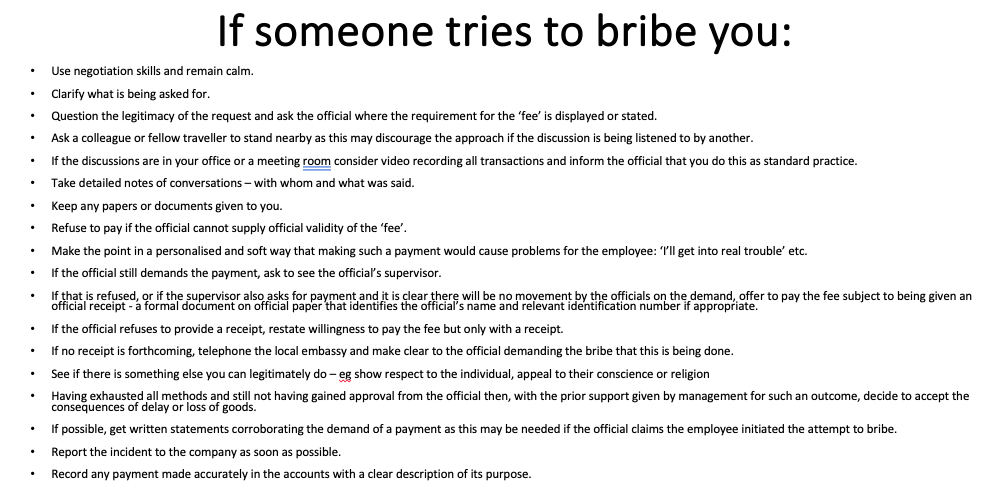Details Matter
This week, I started on a project where investors are looking to fund renewable energy projects across four Southern African countries. My role is to assess risks, identify gaps (controls and culture), and develop an action plan we can implement with the renewable power provider.
The Company paid a law firm to draft an anti-corruption policy that is long, legalese, and confusing. It directs the reader to contact functions (compliance) and resources (speak-up line) that don’t exist yet. They’ve recommended that gifts above $500 be recorded; that’s very generous. Then there’s the chaos around facilitation payments (FPs are small payments made to officials to ensure they do the job promptly/adequately).
The policy starts by naming local legislation, then the US’s FCPA and the UK’s Bribery Act. The FCPA requires we record FPs, but the UK prohibits them. Later, the policy reads, “Small payments made to low-level government officials to secure a routine governmental action are not covered by the FCPA and subsequently this Policy.” We then learn, “The Company does not make, and will not accept, facilitation payments or “kickbacks” of any kind.”
Okay, so what are operational folks to do?
This may seem like a minor issue. However, a renewable energy company deals with an extensive list of officials and requires endless permits, inspections, audits, and approvals. I’m not talking about the obvious ones (site access, construction, land use, off-takers, utilities, etc.); we get pretty funky quite quickly with civil aviation authorities (making sure wind turbines don’t impact flightpaths) and waste disposers (photovoltaic cells need careful dismantling at the end of life).
There are many lessons here, but my top picks:
🚦 Get specialist advisors.
🚦 Pick a regulatory high bar – it’s safer and won’t confuse people.
🚦 Focus on how – see the screenshot below*.
* Sanitised/redacted and realistic guidance from an agribusiness operating in overlapping markets who know extortive (FP) demands are likely. It’s not as pretty and fancy as the lawyer’s policy. Still, when explained during immersive training for operational employees tasked with these licenses, permits, and so on, it’s 1000% times more valuable and infinitely less confusing.
When we focus on the outcome we’re seeking, life becomes clearer.

